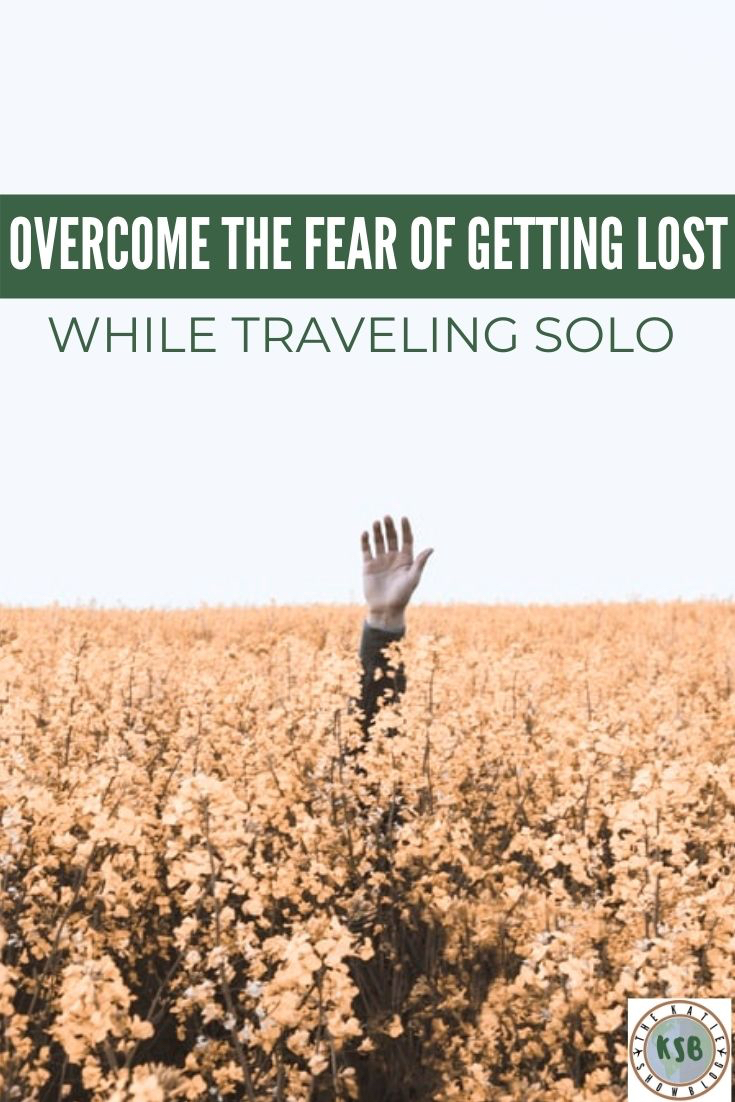

Getting lost while solo traveling can be incredibly disorienting and frustrating, but it’s also a powerful learning experience. It forces you to rely on your resourcefulness, resilience, and problem-solving skills. This article explores the common pitfalls of solo travel mishaps, specifically getting lost, and offers practical strategies to recover and keep your adventures on track. It will delve into the various causes of getting lost while traveling, cover essential preparation measures to reduce the likelihood of such incidents occurring, provide solutions if you find yourself in such a predicament, and ultimately offer strategies for dealing with the emotional fallout of the experience. The following sections will guide you through these key areas, from preparation to recovery.
Understanding the Frustration of Getting Lost
Common Causes of Getting Lost
The frustration of getting lost while solo traveling stems from a variety of factors. Often, poor planning plays a significant role. Insufficient research on the destination, lack of clear route planning, and not having a backup plan can leave travelers vulnerable to getting lost. Unforeseen circumstances, such as unexpected traffic, construction, or inclement weather, can also disrupt planned itineraries, potentially leading to disorientation. Problems with navigation tools, such as inaccurate maps or unreliable GPS devices, can contribute to the frustration of being lost.
Preparing for the Unexpected
Essential Solo Travel Preparations
One crucial step in mitigating the risk of getting lost is thorough preparation. Comprehensive research on your destination is paramount. Understanding the local geography, transportation systems, and potential challenges will greatly increase your chances of avoiding unwanted situations. Downloading offline maps and using GPS navigation apps with offline capabilities can provide valuable support during moments of disorientation. Keeping your itinerary visible and accessible, ideally via a physical copy, can prove invaluable in case of technological issues or network outages. Sharing your travel plans with a trusted contact is also an excellent preventive measure.
Navigating the Terrain of Getting Lost
Strategies for Handling Lost Situations
When getting lost, prioritize safety and stay calm. Assess the surroundings to identify landmarks, physical features, and potential sources of assistance. Try to understand your location by using any available maps, landmarks, or local signs. Consider seeking assistance from friendly locals, always being mindful and respecting their cultural norms. If cell service is available, contact your support network, family, or friends. In emergency cases, contact the local authorities or relevant embassies. Make a conscious effort to document the situation, recording the time, location, and any significant details.
Recovering from the Experience
Overcoming the Emotional Fallout
Experiencing the frustration of getting lost is a powerful learning opportunity. Recognizing what led to the situation—poor planning, unreliable information, or unforeseen circumstances—is the first step to moving forward. Processing your feelings and understanding how you reacted is crucial. Learn from the experience. Consider documenting the experience, recording what happened, and how you responded, for future reference.
Additional Tips for Solo Travelers
Practicing Safe Travel Habits
Fortifying yourself against challenges and unforeseen situations requires a comprehensive safety strategy. Carry essential supplies such as a first-aid kit, a portable charger, and a trusted source of communication like a satellite phone or personal safety device. Develop strong navigation skills and understanding of your surroundings and always be mindful of your belongings, and be aware of your surroundings. Remember to be cautious of situations that might make you feel vulnerable.
Conclusion
Key Takeaways: Preparing for Unexpected Circumstances
Embarking on a solo journey can be exciting, but unexpected challenges are inevitable. Ensuring you are prepared and equipped to deal with potential mishaps will significantly lessen any anxieties and frustrations. Developing strategies for addressing unexpected events, understanding what might go wrong, and having a contingency plan in place are key to ensuring a positive and safe experience. Prioritizing safety and planning ahead will greatly reduce the chances of getting lost and improve the overall travel experience, even when faced with unexpected setbacks.
Frequently Asked Questions
What are the common causes of getting lost while solo traveling?
Getting lost while solo traveling can stem from a multitude of reasons, from poor planning and inaccurate maps to unforeseen circumstances like bad weather or unexpected detours. Sometimes, a lack of familiarization with the local area or relying solely on unreliable technology can also contribute to the problem. In some cases, miscalculations of time or distances might lead to a traveler being caught off guard by unforeseen delays or changes in the travel schedule. Unforeseen incidents such as accidents or health problems can also lead to one getting lost while traveling. Therefore, it’s important to be prepared with a well-thought-out travel plan and contingency measures to navigate these situations effectively.
How can I avoid getting lost while solo traveling?
Planning and preparation are paramount for avoiding getting lost while solo traveling. Start by researching your destination thoroughly, understanding the local geography, and downloading offline maps. Consider investing in a GPS device or a reliable navigation app with offline capabilities, which can prove invaluable in unexpected situations. Furthermore, share your itinerary with a trusted friend or family member, and inform them of any changes to your plans in a timely manner. Communicate with locals and ask for directions whenever you’re unsure about the route, and make sure that your cell phone has enough battery life or you have access to a reliable charging point. Always carry a comprehensive first-aid kit with emergency medications and any personal health essentials, enabling you to respond to medical issues promptly and decisively.
What steps should I take if I get lost while traveling solo?
If you find yourself lost while traveling solo, prioritize your safety and well-being. Stay calm and assess your immediate surroundings. Try to identify landmarks or notable features that can help you locate your position. Seek help from locals who seem friendly and approachable. If possible, contact the local authorities or your embassy for assistance. Document the location where you’re lost, including the time, and make any attempt to communicate with your support network. Consider the possibility of creating a contingency plan if the situation persists, and attempt to seek assistance if you encounter any security risks or harmful circumstances. Also, remember to be mindful of your belongings at all times, and be aware of your surroundings. Maintain awareness of your surroundings and avoid risky situations.
How can I recover from the frustration of getting lost while solo traveling?
Experiencing the frustration of getting lost on a solo trip is unavoidable, but it’s crucial to learn from the experience and regain composure. Identify what caused the issue—was it a lack of planning, incorrect information, or unforeseen challenges? Take time to process your feelings, whether it’s frustration, fear, or anxiety, which will help you understand how to tackle future problems. Embrace the experience as an opportunity for personal growth; remember that these experiences are often pivotal moments in our personal journeys, enabling us to understand the value of preparedness and resilience. Celebrate the experience and keep a journal to document what happened, and how you reacted to the incident. This will help you overcome the situation and make you stronger.
Getting lost while solo traveling can be incredibly frustrating, but it’s also an opportunity for growth and resilience. Remember that setbacks are a natural part of the journey, and having a plan to deal with unexpected situations is key to enjoying your adventures. By preparing mentally and physically, understanding the potential pitfalls of solo travel, and having a solid plan B, you can turn a frustrating experience into a valuable learning opportunity. Always prioritize your safety and well-being, and if you’re unsure about your next steps, reach out for help. Next time you embark on a solo trip, ensure you’re equipped with the right tools, from reliable technology to a strong support network. This will help you navigate any unexpected challenges with confidence and grace.